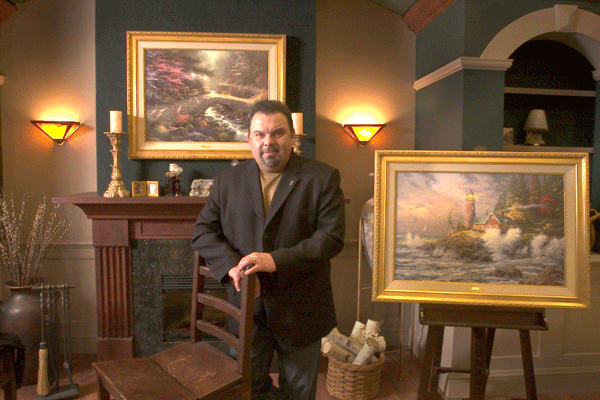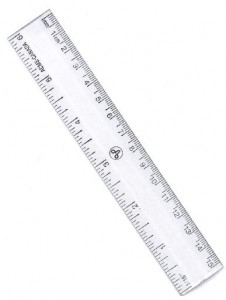“Poetry is nothing but a certain astonishment before the world and the means for this astonishment.”
Andre du Bouchet, 1954
Delonte West on Writing
I’m into all kinds of art. I enjoy beautiful things and I like to create.
I guess he had some emotions he wanted to get off his chest. He was just skipping down the Yellow Brick Road in the Wizard of Oz.
If we are going to play with a sock, I’ll play with a sock.
I got out of house arrest this morning.
Bugs Bunny is the smoothest dude I ever met. You know he be chillin’ like it just be a normal day and he- it be cold just like how it is in Boston and he just want to dive in the ground, pop up, he be like oh man this ain’t Albuquerque. That’s got to be the tightest life you just hop underneath the ground and go! No traffic, no Mass pike, no tolls, no taking Yankee hats off- just underneath the ground…BAM…carrots…
I did a study in college, and my study show, in the African American community, the Yankee hat, the navy blue and white, it just, I don’t know, do something for your swagger.
I like to paint murals of the ocean that I see beyond the horizon, because I feel if — in order for us to grow, we gotta know.
You kinda almost have to be the voice of reason out there.
My timing’s a little off. I felt a little foolish.
Soon, maybe this summer, I may get an art gallery going.
Twenty years from now, you’re going to see me riding in a drop top hummer buck naked with some ankle socks on and a headband on.
Well, there is two halves to everything.
One fish, two fish. Red fish, blue fish. Knick knack, paddy whack, give a dog a bone. Ding.
You can’t kill a G. Bugs Bunny is a G.
They took my uniform out of my locker today.
I think it’s kind of freaky.
I’m literally making things up.
 Every once in a while, I fixate on word usage and hatch wild theories about why a certain word or phrase becomes trendy in conversation. We’re all aware, I presume, of the privileged place “literally” has achieved in our lexicon. It is used most often, it seems, to denote emphasis. I’m not the only one interested in its abuse/overuse. But, like a 70-year-old tweed-clad professor with a pipe and a penchant for pretty coeds, I’m curious about what its popularity might suggest about “the times.” Maybe we are entrenched in an Age of Hyperbole, where everything must be biggened and baddened in order to be heard or believed (see Fox News, etc.). Maybe “literally” signifies some kernel of steadfast truth amidst all of that shouting, a counterpoint to the sensationalism. Or perhaps “literally” is a response to the Age of Irony for the same reasons, where we intend it to denote sincerity. Since my guess is that we’re in the twilight of that age, and are now seeing the quick waning of its companion age, Post-Irony, my hope is that we’ll hear a lot less “literally” and a lot more good, dramatic pause.
Every once in a while, I fixate on word usage and hatch wild theories about why a certain word or phrase becomes trendy in conversation. We’re all aware, I presume, of the privileged place “literally” has achieved in our lexicon. It is used most often, it seems, to denote emphasis. I’m not the only one interested in its abuse/overuse. But, like a 70-year-old tweed-clad professor with a pipe and a penchant for pretty coeds, I’m curious about what its popularity might suggest about “the times.” Maybe we are entrenched in an Age of Hyperbole, where everything must be biggened and baddened in order to be heard or believed (see Fox News, etc.). Maybe “literally” signifies some kernel of steadfast truth amidst all of that shouting, a counterpoint to the sensationalism. Or perhaps “literally” is a response to the Age of Irony for the same reasons, where we intend it to denote sincerity. Since my guess is that we’re in the twilight of that age, and are now seeing the quick waning of its companion age, Post-Irony, my hope is that we’ll hear a lot less “literally” and a lot more good, dramatic pause.
Word Bigot

There are some words that, when I come across them in a work, make me unhappy, sometimes even upset. Maybe for all of us, this is true. We are accustomed to groaning over phrases (too cliche, too idiomatic), tropes, themes, etc., but it strikes me as peculiar, on this particular night, that individual words, taken individually, can also bring the cringe. They’re just words! And yet, certain ones seem dirty, cheap somehow–carrying more than their fair share, evoking too much, taking some of the onus off the writer and moving it onto some collective, anthological poetic consciousness. Too, is word-disdain the equivalent of that prevalent relationship theory–that when you dislike a certain person, you’re disliking the part of yourself you see in him or her? Are you, here, rejecting the part of yourself that secretly, shamefully, is prone to using the blacklisted words, or uses them still? For me, words that put me off tend to be ones I cherished at some point, maybe when my expectations of language were different, but ones that I’ve since, I don’t know, outgrown? That’s not quite right. Can you grow out of words? Have you? Which ones? Let’s burn some up. Or, burn some sage and get a few back.
The winners of the weird words for Words contest are Sabra Embury & Sean K. Their entries, respectively:
A fall, it takes, eats–mother crams him, burnt and opaque; her glimpses diamond heavy, dog tired dead, yes–their wall runs blood.
&
Her fall: a tired mother glimpses their dead dog’s burnt, opaque blood, “Diamond, yes!” wall-runs and takes him, eats, crams it.
&
Please email satorpress at gmail dot com to claim your book.
In celebration of Mr. Kimball’s & Mr. Devine’s appearance tonight, I’m giving two copies of WORDS away. Make a sentence out of these words: a, and, it, dog, runs, mother, blood, diamond, tired, heavy, wall, takes, glimpses, eats, burnt, opaque, crams, the, him, her, dead, fall, yes, their. Add your email. I’ll pick two favorites by the 9pm PST.
Thinking about Intervals and Nature
 As the new year and decade begin, I’m thinking about intervals. Most instantly, a year seems to be a more natural interval than a decade. Roughly the same things happen each year. There will be a shortest and a longest day and the air will grow warm and then cool again. The arbitrary part of a year is in its stopping/starting point. Nothing is magical so far as I can see about where we choose to end one year and begin the next. If anything, I’d prefer to wait until mid-February or so to conclude all of last year’s business and begin anew.
As the new year and decade begin, I’m thinking about intervals. Most instantly, a year seems to be a more natural interval than a decade. Roughly the same things happen each year. There will be a shortest and a longest day and the air will grow warm and then cool again. The arbitrary part of a year is in its stopping/starting point. Nothing is magical so far as I can see about where we choose to end one year and begin the next. If anything, I’d prefer to wait until mid-February or so to conclude all of last year’s business and begin anew.
A decade in the natural world seems to mean not much. But what about in a lifetime? Age 0-10, age 10-20, age 20-30, and so–these seem a bit more adequate as era-markers. Even in the 1800s decades were given sobriquets. There were the Hungry Forties (think potato famine) and the Gay Nineties (aka the Naughty Nineties; aka the Mauve Decade). But not before that; what about modernity made the decade seem like a definable, describable, identifiable interval?
Day is perhaps the truest time-interval. The sun will rise and set. While a year is a real thing, a felt thing, it is usually too drawn out and diffuse to pinpoint or summarize in a word. If you say that 2003 was a good year, I will know that it took the space of time for you to make that judgment. Mid-year, there is no telling. But a day has a character and a shape detectable even as it passes. It is defined by its largest moment. It can be remade no more than once, and the next day may be something else entirely. “Weeping may endure for a night, but joy cometh in the morning” (Ps. 30:5).
These are time intervals. Modern space intervals mean very little (inch, mile, pint) and exist only for the purpose of standardization, ratio.
Then there are language intervals.
WORDS THAT SHOULD DIE AMONG OTHERS:
paradigm very salient
zany droll hopefully excited
nonplus risible gender guy
Fernando Pessoa paradigmatic clarity

